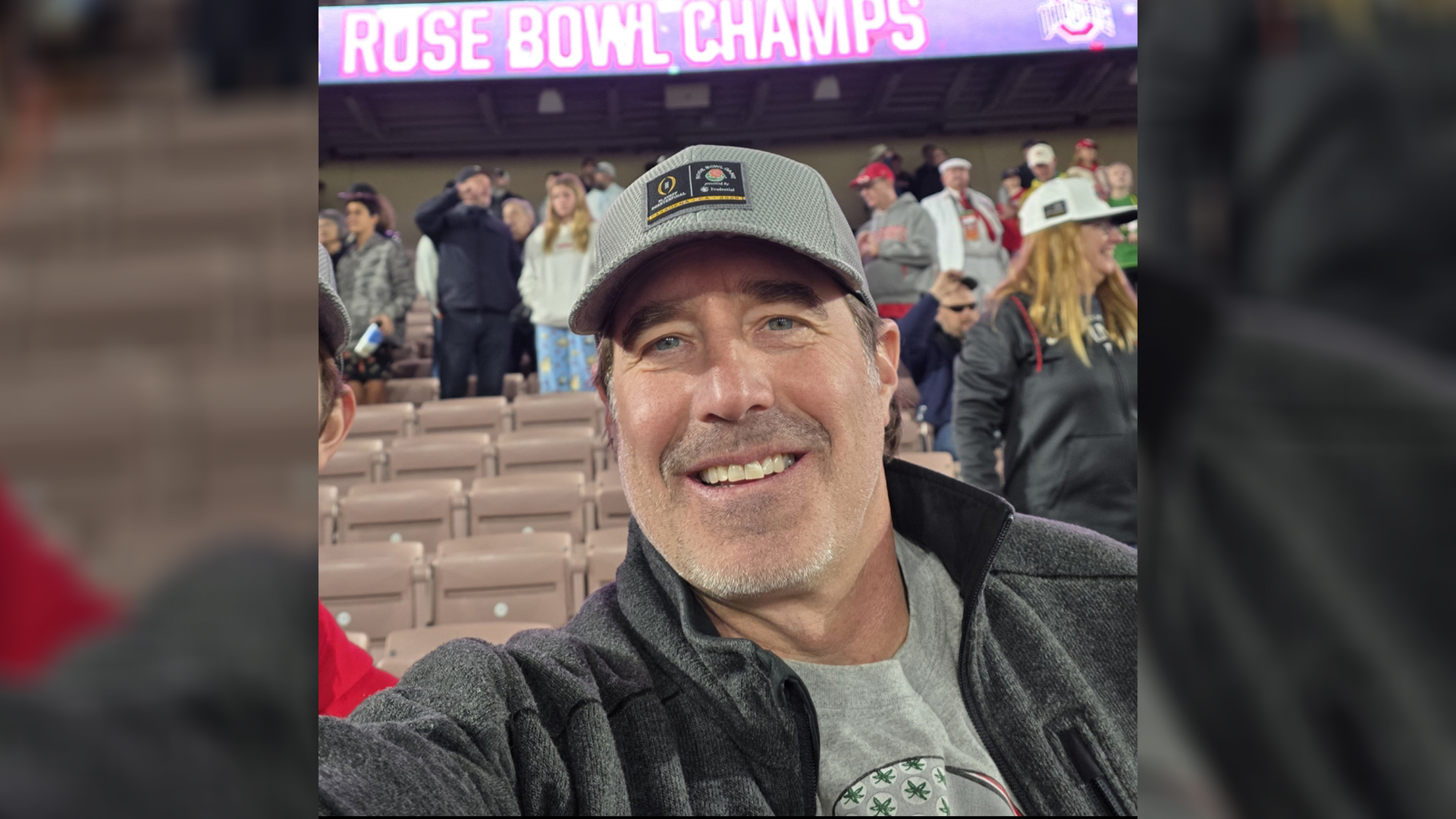From RBT to BCBA: Michaela’s Applied Behavior Analysis journey
Michaela shares her experience in Ohio State’s ABA program, highlighting her growth from a registered behavior technician (RBT) to a future Board Certified Behavior Analyst (BCBA).

When Michaela Williams began working as a Registered Behavior Technician (RBT), she found herself building relationships, earning trust, and seeing change from the smallest steps. Working primarily with children with disabilities, including those with limited communication, was challenging, but it lit a spark.
“For me, every day as an RBT feels like a defining moment,” Michaela says. “I’m constantly fascinated by the process of learning how to provide the best care and interventions for my clients. Seeing their progress, whether it’s a new skill or a reduction in challenging behavior, reminds me why I chose this field.”
What she loved most was watching her clients become themselves.
“I also really cherish watching my clients grow into their personalities. Many of my clients have started out reserved or shy, and over time, I have gotten to witness their confidence grow and their unique personalities shine through. It’s incredibly fulfilling and rewarding to see!”
Some days were tough and filled with challenges. She used those times to strengthen her commitment. “Even on rough session days when maladaptive behaviors increase, my mind starts racing with new strategies or techniques to try in the next session.”
Michaela knew she wanted to do more — design behavior plans, lead teams, and support families on a broader scale. That’s when she began exploring how to become a Board Certified Behavior Analyst (BCBA), and discovered her next step at Ohio State’s online ABA master’s program.
Choosing Ohio State for her ABA master’s program
From the start, Michaela had a goal: become a BCBA, lead clinical teams, and contribute to research that supports individuals with limited verbal communication. She chose Ohio State’s Master of Educational Studies, Applied Behavior Analysis program to help her get there.
“I’d already fallen in love with ABA while working as an RBT, but I wanted a program that paired cutting-edge research with practical tools I could bring straight to my clients,” she says. “Ohio State’s reputation, the flexibility of the online format, and the chance to learn from faculty who are leaders in special education made it the perfect fit.”
Support beyond a curriculum
Michaela describes her experience at Ohio State as both “energizing” and “deeply supportive.” “The classes are challenging in the best way, the cohort feels like a close-knit community, and the faculty genuinely celebrate our wins!”
One of those wins, completing her thesis, faced IRB delays outside her control. Her advisor stepped in and went the extra mile. “Dr. Matthew Brock consistently advocated for me and supported me in navigating the process. He also helped me secure a grant that covered my educational costs, which took a huge weight off my shoulders. Beyond that, he was always available to answer questions and provided invaluable support while I worked on my thesis.”
That support helped elevate Michaela’s work. “He helped me develop my research questions, shared excellent resources, and gave thoughtful, detailed feedback on my drafts that really pushed my work to a higher level.”
Her thesis, Functional Communication Training for Young Children with Autism: A Systematic Review of Single-Case Design Studies, draws directly from her clinical experiences. “I’ve always been passionate about communication interventions, especially for children with limited verbal skills, so this topic was a natural fit for me. I wanted to better understand the effectiveness of Functional Communication Training (FCT) specifically for children with autism under the age of 8, and explore which intervention components contributed most to successful outcomes.”
She credits another faculty member, Dr. Sheila Morgan, for helping her grow as a clinician. “I had her for multiple courses, and she consistently provided helpful feedback on assignments that contributed to my growth as a practitioner. She also shared valuable resources to help me prepare for the BCBA exam, which I truly appreciated.”
Across the board, Michaela says faculty were accessible and invested. “From quick email check-ins to in-depth mentoring on my thesis, the faculty have been incredibly accessible. They provide detailed feedback, share real clinical examples, and connect us with professional opportunities that I never would have found on my own.”
Turning theory into immediate impact
One of Michaela’s favorite aspects of the program is how directly it applies to her day-to-day work.
“Functional behavior assessment, data-based decision making, and behavior-change procedures like token economies and functional communication training show up in my sessions every day,” she says. “The program also sharpened my ethical decision-making and collaboration skills, which are essential when working with multidisciplinary teams!” The results came fast. One concept from class helped her identify a surprisingly effective reinforcer for a potty-training client.
“One specific example was when we learned about different types of preference assessments. A few weeks later, I had a client starting potty training, and we needed to find a highly preferred edible reinforcer that would be effective and take advantage of deprivation. I recommended and conducted a Multiple Stimulus with Replacement (MSW) assessment using various candies with different textures and flavors.”
The winner: sour candy.
“Surprisingly, I found that my client absolutely loved sour Trolli candy. When I shared this with his mom, she was shocked. She said he’d never been given sour candy before! Without that assessment, I might’ve selected a less effective reinforcer, and I would’ve missed out on identifying something truly motivating for him.”
It’s exactly the kind of client-centered, data-driven work Michaela wants to do more of. “The combination of real-world case studies, practicum experiences, and constant feedback from professors and classmates has given me a toolbox and confidence to design interventions that truly improve clients’ quality of life!”
Balancing work and school
While earning her degree, Michaela continued working full-time as an RBT. Her success came down to discipline, structure, and keeping it simple.
“I run very well on routines, so having structure has been key,” she says. “I work from 10 a.m. to 6 p.m., and during free moments, whether on breaks or in between clients, I use that time to complete smaller assignments. After work, I take care of dinner and any other personal tasks before starting classwork around 7 p.m. and continuing until about 9 or 10.” She relied on what she calls her “small bites” strategy.
“I’ve learned that it’s much more manageable to break large assignments into smaller portions. So during the week, I’ll tackle part of a big project for one class, then switch to a different class and work on another piece. This ‘small bites’ strategy helps me stay motivated and prevents burnout. On weekends, I use longer stretches of time to knock out larger portions of those assignments.”
The tool that made it work? A spreadsheet.
“At the start of each term, I go through every syllabus and input all assignment due dates into one sheet, which I then sort by date. I keep it easily accessible so I can quickly see what’s due and take advantage of small pockets of time. This method has really helped me manage overlapping deadlines and prioritize my workload effectively.”
Michaela’s message to future students
For RBTs considering their next step, Michaela has this advice:
“Do it! You’ll gain a rock-solid foundation in ABA, be guided by passionate faculty, and join a community that genuinely wants to see you succeed. If you’re looking for a program that blends academic rigor with hands-on application and real-world impact, Ohio State is the place.”
How Ohio State can support your BCBA journey
If Michaela’s story resonates with you, you’re not alone. Many professionals start their ABA journey in the field, driven by compassion and a desire to make a bigger impact.
Ohio State’s online ABA program offers a step forward with flexibility for working professionals and support from faculty who understand the field firsthand.
What you’ll experience in Ohio State’s online Applied Behavior Analysis program
- Flexible, fully online coursework designed to fit your busy schedule
- Curriculum aligned with BACB® requirements to prepare you for the BCBA exam
- Experienced faculty who provide personalized mentoring and real-world insights
- Opportunities for supervised fieldwork that meet BCBA credential requirements
- Access to cutting-edge research and evidence-based practices in Applied Behavior Analysis
Ready to take the next step in your ABA career?
Ohio State’s online Master of Educational Studies, Applied Behavior Analysis program provides the flexibility and support you need to reach your goals. Get in touch with an enrollment advisor to learn more and take the next step in your ABA journey.
Recent Blog Posts
Recent Blog Posts

How one defense analyst leveled up with an online GIS master’s

Social worker Audra Jordan’s journey to a Master in the Study of Law

Is the Doctor of Nursing Education program NLN CNEA accredited?
Get Started

